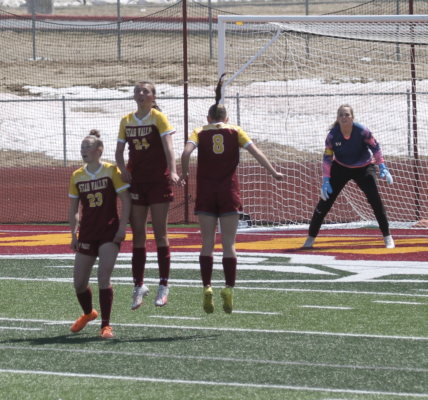By Stephen Dow
The Sheridan Press
Via- Wyoming News Exchange
CHEYENNE — Economist and former state Rep. Mike Madden, R-Buffalo, knows the challenges of passing new taxes in Wyoming.
During his 12 years in the Wyoming Legislature and seven years as chair of the House Revenue Committee, Madden pursued numerous mechanisms to diversify Wyoming’s tax base — from sales and property tax proposals to lodging and cigarette tax increases. Whatever the proposal, they faced an uphill battle, Madden said.
“Any tax proposal in Wyoming has some hurdles it has to jump,” Madden said. “Historically, there hasn’t been a lot of support for taxes among our legislators.”
A new resolution being considered by the Legislature this year could create yet another hurdle for potential revenue creation in the state, Madden said.
“At least the intent is to make it harder,” Madden said. “Any tax now has to pass two different hurdles, and that makes it that much harder for it to be approved.”
Senate Joint Resolution 1, proposed by Sen. Tom James, R-Rock Springs, would pave the way for a potential amendment to the state Constitution, which would require any new state taxes or tax increases to be approved not only by the Legislature but also by the voters of the state.
James said the intent of his resolution is to put the deciding power back in the hands of the people.
“I am sponsoring this bill in order to give a voice to the people that they currently do not have,” James wrote in an email. “When these important issues come up for discussion, they usually come up quickly and on Monday through Friday during work hours when Wyoming’s citizens just do not have the time to come down to Cheyenne (and) sign up to have their voice heard… Will it make it harder to burden the people with new taxes and tax increases? I hope so!”
If passed by the Legislature, James’ resolution would place the potential Constitutional amendment on the ballot for voter consideration.
Currently, the Wyoming Constitution allows the Legislature and local governments to impose taxes through the normal legislative or rulemaking process. The proposed new amendment would not circumvent this process, James said, but would instead add another step requiring all proposed taxes to go before the electorate.
“I would like to clarify that this will not rest solely with the voters,” James wrote. “The Legislature, as well as county and city governments, still have to vote on the tax and/or tax increase. Should the proposed tax or tax increase fail to receive enough votes to pass, nothing happens — the bill is dead. However, if a bill creating a new tax or increasing an existing tax receives enough votes and passes, then it goes to the voters, our bosses, for approval. This still stays true to the Republican process.”
James said he hoped the passage of his resolution would slow any discussions about tax increases in the state and force lawmakers to consider other alternatives, such as business recruitment.
“I am hoping the Legislature will look for other means of revenue instead of taxes,” James wrote. “There are far better options out there that the Legislature seems to only talk about, but never takes any action on. For instance, we should be looking at what would attract private sector businesses to set up and remain in Wyoming without using taxpayer dollars… We need to have conversations with business leaders regarding rules, regulations and any other issues that may hinder their growth or desire to come to/remain in Wyoming and work with those businesses to come up with solutions pertaining to those issues.”
There is some precedent for James’ proposal, but nothing completely analogous.
Oklahoma’s State Question 640, a citizen-initiated ballot measure approved in 1992, said a revenue bill can only become law if it is approved by three-quarters of both legislative chambers or if it receives majority approval in a vote of the people. Since the passage of State Question 640, Oklahoma voters have only approved one increase in state taxes.
Measures similar to the one proposed by James amended state constitutions in Montana and Washington before being overruled by those states’ Supreme Courts.
CI-75, approved by Montana voters in 1998, amended the state’s Constitution so any new or increased taxes required an election and voter approval. It was overturned by the Montana Supreme Court in early 1999 because it amended more than one part of the state’s Constitution, which did not comply with the state’s laws.
Similarly, Initiative 695, approved by Washington voters in 1999, required voter approval for tax increases. It was overturned by the Washington Supreme Court in early 2000 because it violated the state’s single subject rule by also repealing existing fees and excise taxes for motor vehicles.
With no true precedent, James’ resolution is in largely untrod territory, which is concerning to Madden.
“My usual way of approaching something like this is looking at where it has been tried before and how it has worked,” Madden said. “If there is another state and it worked there, that’s encouraging. But if no other state has done it, and we don’t know how it’s going to work, that would scare me.”
Even if there was precedent, Madden wonders whether this is the best time to place another hurdle in front of those hoping to raise revenue for the state.
“The risk is not being able to act quickly enough,” Madden said. “The Legislature could pass a tax, but if the voters reject it, they would need to go back to square one, which takes time. But right now, time is of the essence, and in our state’s case, we don’t have time to be wasting.”
James’ proposed resolution comes as the state is expecting a $225 million general budget shortfall over the next biennium and is making cuts in almost every area of its budget — from programs for the poor and disabled to local community colleges and the University of Wyoming. Last week, Sen. Dave Kinskey, R-Sheridan, proposed a 10% cut to direct distribution for local counties, cities and towns. Kinskey said funding would likely continue to decrease unless the state’s revenue situation turned around.
If direct distribution was to disappear entirely, the whole state would likely have to choose between increasing taxes — a historically unpopular option — or facing a major decline in services provided by local governments, Sheridan County Administrative Director Renee Obermueller said.
“Whenever we talk about revenue replacement, that is just a nice way of saying additional taxes,” Obermueller said. “We need to ask our citizens, ‘Do you want to go backwards or remain status quo?’ If direct distribution dollars go away, the only way to keep that status quo is if our citizens are willing to pay an additional tax. If we’re going to balance our budget entirely though cuts, that is going to change the dynamics of our state greatly.”
The Legislature is considering a few new revenue options this year, including a nine-cent fuel tax increase from 24 to 33 cents per gallon, which would raise approximately $60.3 million a year and a 24-cent cigarette tax increase from 60 cents to 84 cents a pack, which could increase revenue to the general fund by $5.2 million per year.
James’ joint resolution has been received for introduction in the Senate.







